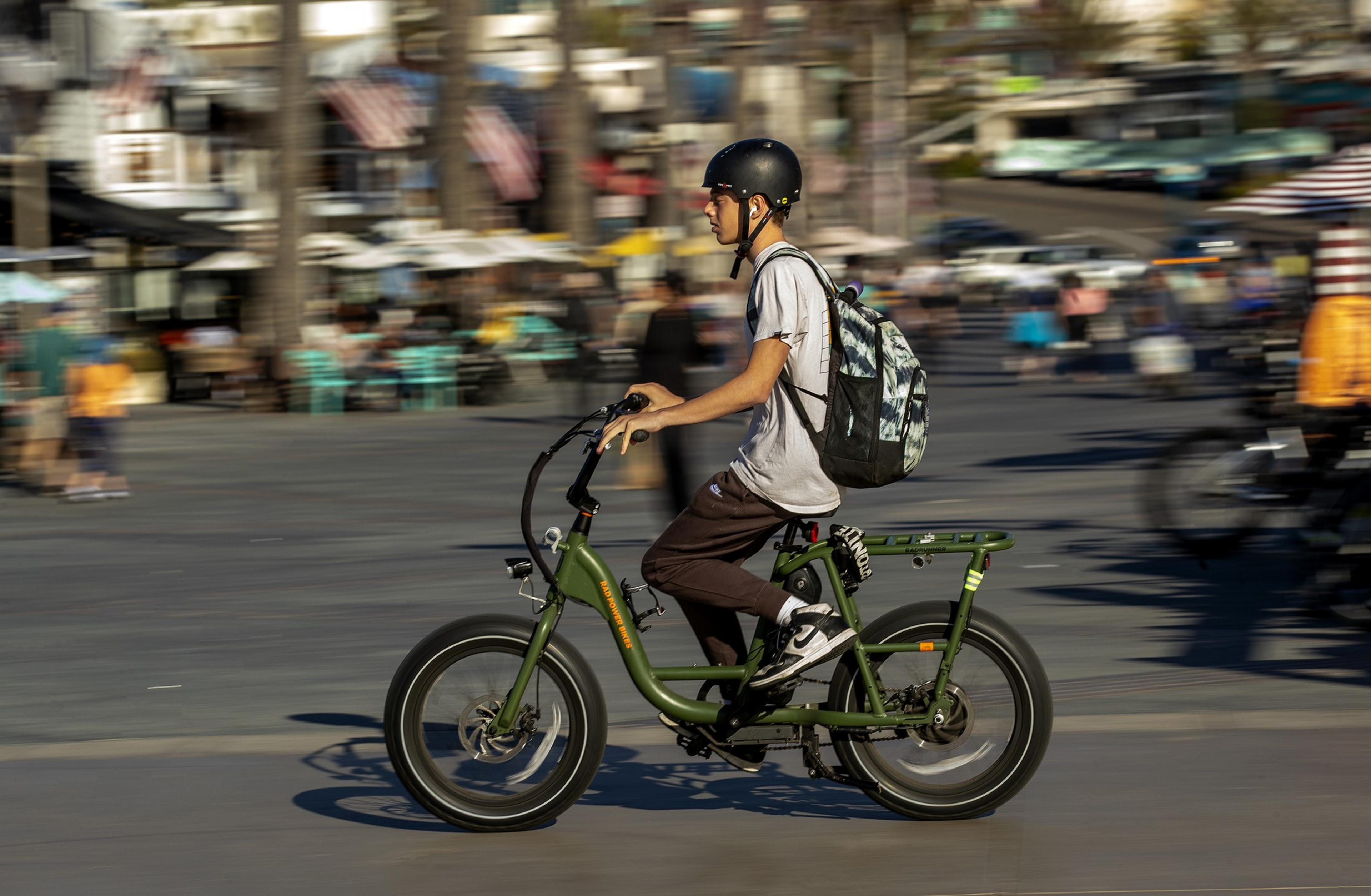Two California lawmakers want to crack down on kids riding electric bicycles, citing safety concerns in the wake of a series of high-profile crashes (opens in new tab).
One bill, introduced last week by San Diego area Assemblymember Tasha Boerner (opens in new tab), would bar anyone under 12 years old from riding an e-bike and require e-bike riders without a driver’s license to take an online safety course, pass a written test and carry a state-issued ID while riding.
A second bill, authored by Marin County Assemblymember Damon Connolly (opens in new tab), would set an age threshold of 16 years old for riding a Class 2 e-bike—which uses a throttle to propel the bike up to 20 mph.
E-bikes have exploded in popularity across the country in recent years. Though exact sales figures are hard to come by, about 1.1 million e-bikes were imported to the U.S. in 2022, more than triple the 2018 total, according to Business Insider (opens in new tab). As ridership has risen, fatal e-bike crashes have made headlines across California, including the deaths of a 12-year-old girl (opens in new tab) in Los Angeles, a 15-year-old boy in Encinitas (opens in new tab) and a 17-year-old boy in Santa Clarita (opens in new tab). Data collected by researchers at the University of California Berkeley (opens in new tab) on all California bicycle crashes, including e-bikes and traditional bikes, shows that both fatalities and serious injuries hit a five-year high in 2022.
“While we continue to encourage the use of sustainable transportation options, we need to address the shocking increase in accidents to ensure everyone in our community is safe,” Connolly said.
Though these incidents have stoked fears about kids riding e-bikes, emergency response data does not back up the idea that e-bikes are dangerous for young people, according to California Bicycle Coalition Policy Director Jared Sanchez.
People 25 to 44 years old, not kids, are the most likely to get in an e-bike crash that lands them in the emergency department, according to the U.S. Consumer Product Safety Commission’s review of over 53,000 incidents (opens in new tab) between 2017 and 2022. That age group represented 34% of all e-bike-driven emergency department visits during that time period, though it makes up about 28% of the U.S. population, according to Census data. The 45- to 64-year-old cohort was the most overrepresented in the hospital visits, making up 30% of emergency department incidents despite being 20% of the U.S. population. Also somewhat overrepresented was the 15- to 24-year-old group, making up 18% of emergency department visits and 14% of the U.S. population.
On the other hand, young kids 5 to 14 years old are proportionally less likely to end up in the hospital as a result of e-bike incidents. They accounted for 7% of the emergency department visits and 13% of the overall population.

California currently doesn’t track statewide data on e-bike crashes, though a bill passed last year (opens in new tab) requires the state to study the issue in coming years.
“Before we get to the state of saying who can ride an e-bike or not, we need to be sure this is a real problem,” Sanchez, who opposes both measures, said.
He thinks that safety efforts would instead be better spent improving street infrastructure to prevent vehicles from colliding with bicycles.
The proposed e-bike bills would not impact other types of so-called micromobility products, such as e-scooters or hoverboards.
Other leaders in the bicycle community balked at the ID requirement in Boerner’s bill. Given the importance of reducing contributions to climate change, California should be making it easier to ride e-bikes, not more complicated, according to San Francisco Bicycle Coalition Interim Executive Director Christopher White.
He also raised concerns that the ID requirement could invite police to make more low-level stops of young Black and Brown people riding bikes. A new policy limiting so-called pretextual stops for vehicles has sparked controversy in San Francisco.
But White was more receptive to the age-restriction proposal and said that children 12 and under shouldn’t be riding e-bikes.
E-bike manufacturer Bill Klehm agrees.
“I think there’s something to be said for a 20-mph bike not being operated by a 10-year-old,” Klehm, the CEO of eBliss Global, said. “As a parent, I would very much like to probably have my young person not riding their e-bike at 12.”
